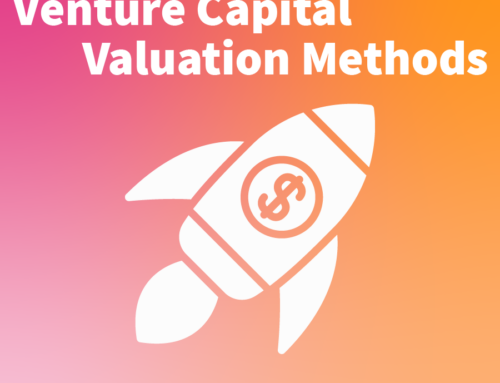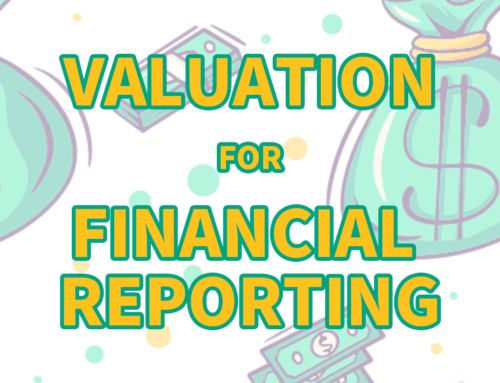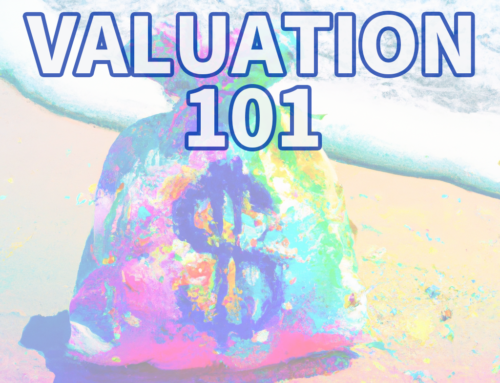409A VALUATIONS
It’s not often that you can reference a specific section of the Internal Revenue Code by number and have a wide audience understand what it refers to; Section 409A is a member of this elite club (likely upstaged only by Section 401K). If you’ve granted (or been granted) options of shares of privately-held companies, you’ve probably been reminded on an annual basis about Section 409A.
While there are similar requirements for publicly traded companies, today’s post focuses on the perspective of privately held companies.
Remind Me – What is 409A?
Section 409A of the Internal Revenue Code outlines a set of requirements related to nonqualified deferred compensation plans. For most people, 409A is relevant specifically with respect to the valuations that must be done to prevent penalties and taxes for both the company and their employees.
Options that are granted with an exercise price of less than the fair market value of the underlying stock on the date of the grant are immediately out of compliance with the 409A requirements surrounding nonqualified deferred compensation arrangements. This is a big deal to both the option holder (generally an employee or contractor) and the company – the option holder has to pay taxes sooner (as the options vest, rather than upon exercise) and is subject to penalties.
409A valuations enable companies to know the fair market value of the underlying stock and ensure that they set the exercise price of options above this.
Safe Harbor Methods for 409A Valuations
409A valuations using one of the allowable safe harbor methods allows companies to establish fair market value assessments that the IRS will accept as long as they are not “grossly unreasonable.” There are three methods covered under safe harbor: qualified independent appraisal, illiquid startup, and binding formula.
Qualified Independent Appraisal
This is the most common approach, and it requires an independent appraisal report from a qualified appraiser to be issued every 12 months (or following a material change).
Illiquid Startup
This method is limited in its applicability, as it is only available for privacy companies that have been in business for 10 or fewer years and do not anticipate an IPO within the next 180 days or a change of control in the next 90 days. Under this method, a valuation report is prepared by someone “with significant knowledge and experience or training in performing similar valuations.”
What qualifies as “significant knowledge and experience”? There’s not a hard and fast requirement, but IRS regulations suggest that significant experience constitutes at least 5 years of relevant experience in any of the following areas:
- Financial accounting
- Investment banking
- Private equity
- Business appraisal/valuation
- Secured lending
- Comparable experience in the company’s industry or line of business
Similar to the qualified independent appraisal, a valuation must be performed at least once every 12 months. This method contains additional requirements, however, including restrictions on obligations to purchase common stock (such as puts or calls) and inclusion of specific elements in the valuation methodology and report.
Binding Formula
This method, also known as the non-lapse restriction valuation method, is the least used method. It bases the valuation on a specific formula price per share. This price is often the book value, though it can be based on a reasonable multiple of earnings or a combination of the two. There must be a buy/sell agreement (non-lapse restriction) under which the stock can only be sold at this price; this price must be used in all transactions (including for non-compensatory purposes) and must essentially serve as the substitute for the value of the stock that underlies it.
Valuation Calculation
Within the first two safe harbor methods (qualified independent appraisal and illiquid startup), there is flexibility with respect to how the valuation itself is calculated. As we’ve seen with other valuation methods, the valuation can be based on a market approach, an income approach, or an asset approach.
How Long is a Valuation Valid?
409A valuations have a maximum shelf life of 12 months (and even less if there’s a material event). Even if the company performs a valuation under the safe harbor guidelines, if they fail to do so every 12 months, the value is no longer considered reasonable. This means that for grants of stock options, the valuation date must be no more than 12 months earlier than the date of grant.
If a company’s valuation no longer falls under the safe harbor threshold because it is “stale,” upon challenge by the IRS, the burden is on the company to establish that its fair market value of the stock at that time was reasonable.
The Risk of Inflated Valuation
Certain cap table SaaS companies have greatly democratized the accessibility of 409A valuations. While it’s great to have a 409A valuation that meets the safe harbor requirements, what happens when it’s wildly optimistic? Great, right?! Well, not exactly. The only thing worse than not having a valuation may be having one that is inflated.
Valuations that are higher than may be warranted can put companies in a difficult position – most significantly, they impact the ability to make strategic decisions. An elevated 409A valuation can anchor expectations too high, leading to a mismatch with investors and possibly even lost fundraising options. It may be difficult to attract talent when equity grants are priced high, as there is much less upside potential for employees.
Why are these cap table valuations notoriously inflated? While they’re based on huge amounts of data, they follow a “one size fits all” approach that does not adequately take into account the specifics of each company. For example, if you’ve developed significant intellectual property that hasn’t yet been commercialized, wouldn’t you want to take that into consideration? Too bad – it’s not reflected on your current financials and there’s no multiple to apply to it. What if legislation was just passed that is going to severely limit your ability to sell in certain markets? What if you just found out that your largest customer is leaving at the end of their contract term?
A low-cost cookie cutter approach will check the box on IRS requirements, but it’s not going to provide you with useful information upon which to base your strategic decisions.
Licens.io brings together tech-enabled solutions and bespoke services to provide you with 409A valuation support that is defensible and useful. We gather millions of data points automatically to enable thorough benchmarking; we also bring decades of experience across a broad range of industries and growth stages. Whether you’re looking for a second opinion on a questionable valuation or are just getting started on this journey, we’d love to help.







